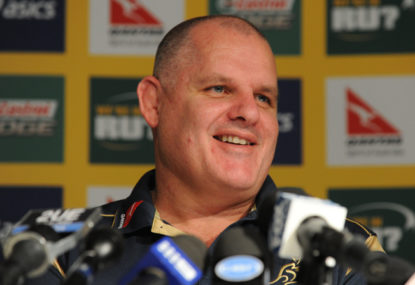I’ve had many coaches in my time, all with their own personal style, mannerisms, and characteristics.
Each have had their own unique way of delivering their message, how they manage a professional squad and the way they deal with the media.
There has been the loud, in-your-face pacing-the-touchline kind, who live and breathe every second of every match.
There’s the pensive, thoughtful one, who spends hours in the office, the whiteboard covered with attacking plays resembling a maths teacher’s notebook.
The stern, actions-speak-louder-than-words type, who doesn’t say much, his facial expressions and rapid arm movements telling you what you need to know.
And the young up-and-coming hotshot, fresh with new ideas and plays, who has to battle with the threat of being more of a mate than a coach.
Like the great players of our game, all great coaches had certain characteristics that made them successful. Not one of the types I mentioned is more effective than the other when it comes to winning matches, because once the whistle is blown, the athletes are the ones in control.
Each specific coaching style has it benefits, because every player is different and reacts differently to a coaching style. It’s true that I prefer a certain type of coach, but my teammates might prefer another.
Rugby teams are built on differing personalities, so what motivates one does not mean it motivates the other. It’s the role of the coach to get us all on the same page, singing from the same hymn sheet, and this, I’d imagine, is an extremely tough job.
Add to this the selection, and the dropping of players, and you are never going to be everyone’s best friend. But as long as the coach is upfront, honest and doesn’t send mixed messages to each individual, players will give him the due respect.
We are not looking for a coach to be our best mate or to say what we want to hear. To improve we need to be told clear and concise messages, which will not only benefit our individual game, but create a positive atmosphere throughout the whole club.
What I have noticed over the years, and the main difference between a coach at semi-professional level as opposed to professional, is how little ‘coaching’ the head coach takes on. There is a team of specialist coaches under him, who are each responsible for a certain aspect of team life, as the coach takes on more of a managerial role.
In 2003, England brought an army of specialists coaches, analysts, physios, doctors and psychiatrists Down Under for the World Cup, their back room staff outnumbered their playing roster. It worked for them, and the sharing of the load is something that has become more predominant as the game progresses.
Not one particular attacking style will beat a defence, so adaptability and having numerous options to counteract oppositions with differing styles is key to ensuring the best chance of winning. However, the head coach still steers the ship and is the one with the last say, and of course the first one to be blamed when things go pear shaped.
Some clubs have even erased the title of head coach from the list of job titles, replacing it with director of rugby – outlining the responsibility of the individual to be across all facets of the rugby club, not just what happens on the training field and on match day.
The best coaches I have had, have been the best managers. They have been approachable and tough but fair individuals that are concerned for your well being not only as a player, but as a person.
Wallabies coach Ewen McKenzie seems to have the respect of the players. Those that have played under him have repeatedly mentioned this, and I think this respect is in no small part down to the fact that he was a professional player himself.
I’m not saying that ex-players make the best coaches, but in terms of understanding the mental and physical demands of players, and the outside factors of the media that affect them on a daily basis, it helps that you have been through it yourself.
The way a player is managed off the field, plays a major role in how he performs on it.
The increased responsibility of the senior players within a squad also has taken away the amount of coaching the head coach undertakes. Most clubs have senior player groups, that are responsible for, among other things, maintaining standards within the playing group. The captain and key decision makers on the field, halfbacks, fly-halves and lineout callers are coaches in their own way too, responsible for making the calls on the field.
Finally, the coach as a ‘manager’ is increasingly evident in the team he selects, the outline of the game plan and the decisions made within the 80 minutes of a match. Whether it is having his players mentally and physically prepared in the minutes before kick off, making the right substitution, or delivering a clear and concise message at halftime, the coach still plays a major role.
The players may be the ones that will decide the outcome, but the coach can shape the way this outcome is achieved.





























































































